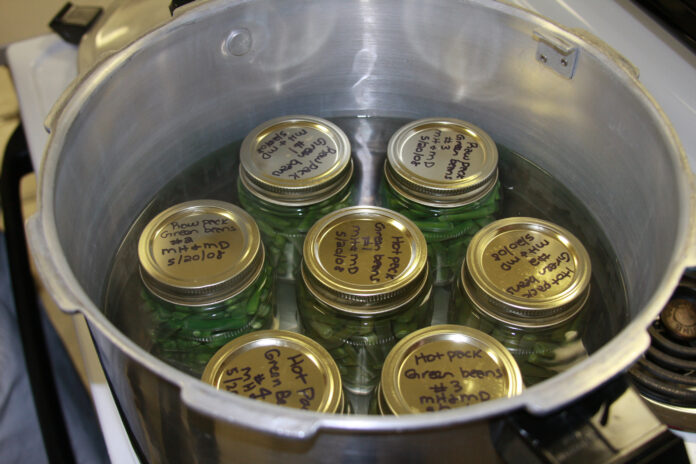
An abundance of homegrown fruits and vegetables often triggers the desire to can foods at home. While this can be a fun and rewarding way to keep foods long after the season ends, care must be taken to assure that foods canned at home are safe to eat.
Following research-based methods and using tested recipes are just things to consider when canning foods at home.
“Not all recipes for home canning have been tested for safety,” said Danae Hicks, county Extension agent for Family and Community Health. Sources of tested recipes include the National Center for Home Food Preservation (http://www.uga.edu/nchfp/), USDA, and manufacturers of home canning equipment and supplies. Recipes from cookbooks, out-dated Extension publications and the Internet should not be used.
Using the right equipment when canning also is important. Some foods can be preserved using a water bath canner, but others must be processed in a pressure canner.
“If the right canning method is not used, then the finished product could make people very sick,” Hicks said. Also, make sure that the equipment you have is in good working order. Experts advise that dial gauges on pressure canners be tested annually to make sure they are accurate. In addition, canners should be checked to make sure they are in good working order.
There are many other aspects to canning that one needs to consider, including jar size, headspace, and recommended processing (canning) times. All of these can influence the safely of the final product.
“The last thing that we want to do is tell someone that the food they have just spent hours canning has to be thrown away or redone,” Hicks said. “However, if one did not use a tested recipe, if unsealed jars were not identified within 24 hours after canning, or if jars were not processed properly (i.e. using a water bath canner instead of a pressure canner) we may have no other choice. Nobody likes to throw food away, but nobody wants to get sick (or worse) from eating unsafe food.”
For more information about canning food at home safely, contact Danae Hicks, county Extension agent, at the Texas AgriLife Extension Service Office in Ellis County at 972-825-5175.






